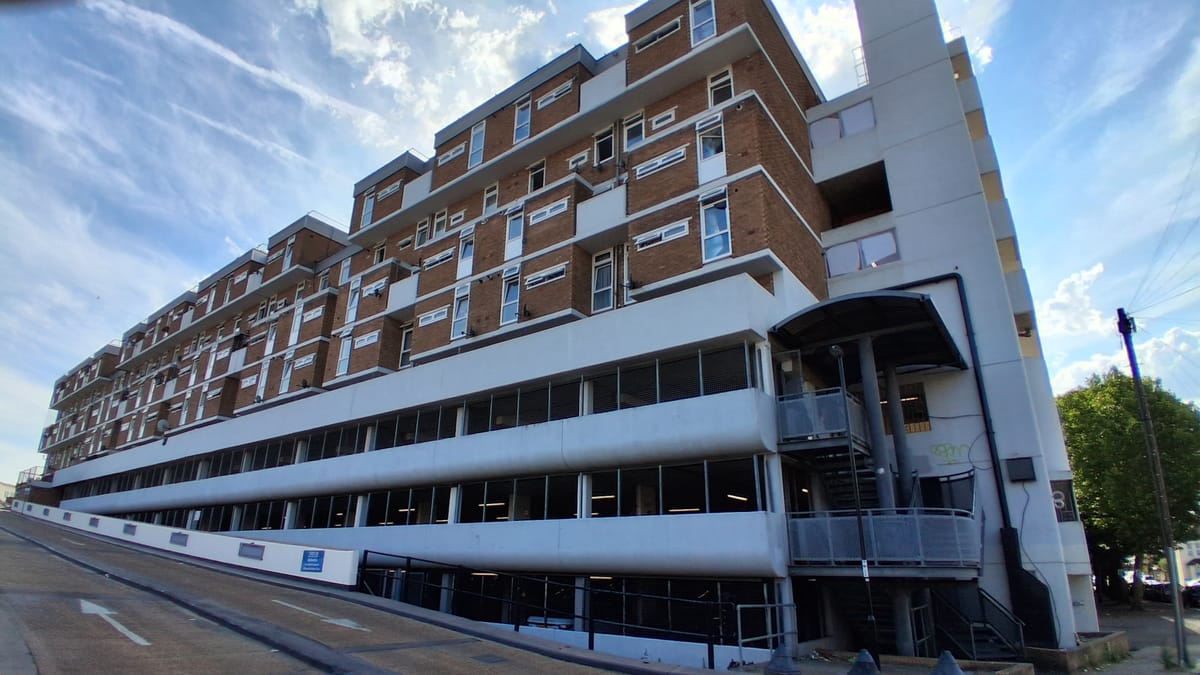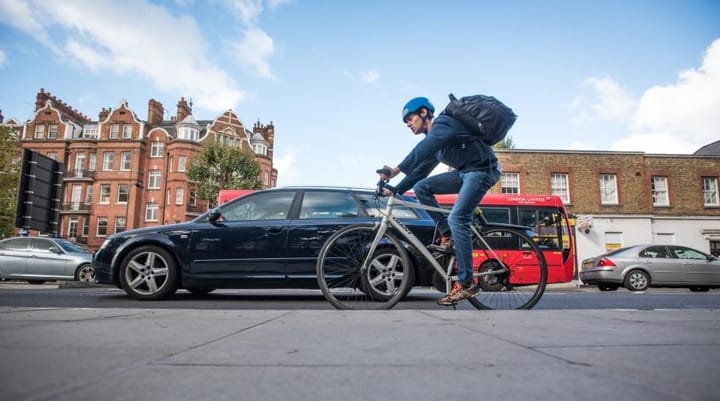MPs debate plan to reduce affordable housing quota to 20%
MPs responded to ministers' plans and Sadiq Khan's record on housebuilding in London, at Westminster Hall earlier this month.

Controversial measures to speed up housebuilding in London - including reducing the required proportion of affordable homes in new developments - have been condemned by MPs as “too little, too late” for the capital’s crisis.
London mayor Sadiq Khan and housing secretary Steve Reed struck a deal last month to cut the required affordable homes ratio from 35% to 20% to stimulate housebuilding in the capital.
London’s construction stagnation has been well-documented in recent months, with figures published last week suggesting builders began work on just 2,158 new private-sector homes in the first six months of 2025 - 4.9%
of the Government’s 44,000 half-year target.
Meanwhile, developers made just 1,239 starts on affordable homes from April to September this year, compared to 3,991 in the whole of the last financial year.
In light of the capital’s struggles, MPs took part in the Westminster Hall debate earlier this month to demand further planning reforms and debate whether the agreed housebuilding package would make any difference.
Conservative MP for Old Bexley and Sidcup Louie French said: “I am afraid that the recent measures announced by the Government and the Mayor of London -without consulting London’s 32 boroughs - to unlock house building are too little, and potentially too late.
“They will give developers only temporary, targeted relief from the community infrastructure levy on brownfield sites, but not from the more expensive mayoral levy.
“The changes to the affordable homes targets do not go far enough - at 35%, demand is still placed on industrial and public land, acting as a blocker on these sites that could host thousands of homes.
“While a temporary fast track route for homes that provide 20% affordable housing is welcome, it is a minor amendment to a system that has ultimately failed.”
Only 6,370 affordable homes have been started since the Affordable Homes Programme (AHP) was signed off in July 2023, despite City Hall targeting at least 17,800 starts by next Match.
French said the previous 35% requirement was to blame as it “made house building in London unviable”, adding: “This policy may seem like a good way to get London building more social housing, but it has hugely backfired.
“The policy [was] effectively a tax on housebuilding.”
Luke Taylor MP, the Liberal Democrat spokesperson for London, claimed the measures would “barely scratch the surface of the bigger and more profound structural barriers to getting green, affordable and safe housing built.”
Other parliamentarians suggested the cut in affordable housing requirements would exacerbate the struggles of poorer Londoners.
Labour MP Apsana Begum, who represents Poplar and Limehouse, said the mayor’s decision would benefit developers but not those in desperate need of affordable homes.
“For so many across London, including in my constituency, the 35% requirement was seen to be an injustice, in and of itself, that contributes to sustaining the housing crisis across London, with rising rates of homelessness, insufficient social housing, soaring rents and associated poor-quality housing,” she told the debate.
“The announcement that the requirement will be reduced to 20% therefore feels like adding insult to injury.
“Constituents see no benefit to them, but more profits for developers, at a time when London is experiencing record levels of homelessness. The demand for social rent homes is at an all-time high.”
Her Tory counterpart Bob Blackman, the MP for Harrow East, said the decision was a “real concern”.
He added: “There are 336,366 households on social housing waiting lists in London. The crunch is whether this decision is actually going to deliver any improvement in social housing.”
Both the mayor and his deputy responsible for housing, Tom Copley, have blamed a “perfect storm” of factors for London’s failure to keep up with the new government’s demands, including high material costs and interest rates, as well as delays caused by the Building Safety Regulator (BSR).
Fleur Anderson, the Labour MP for Putney, admitted the capital has a “broken housing situation” but said she had full confidence in Khan to deliver.
“Tackling the housing crisis has always been a top priority for the mayor of London,” she said.
“Despite some of the claims made today, the facts speak for themselves. Sadiq Khan has started more new council homes in London than has been the case at any time since the 1970s. Before the pandemic, he completed more homes than had been the case at any time since the 1930s.
“That is not luck; it is Labour leadership in action and working hand in hand with Labour boroughs, such as Wandsworth, to deliver for Londoners. Since 2018, 23,000 council homes have been built or are being built with the help of City Hall funding.”
Minister for housing Matthew Pennycook admitted that it was “not in dispute that house building in London is in crisis” and suggested reducing affordability requirements was a crisis response in order to get spades in the ground.
He concluded: “We know that there is no single simple solution to the development crisis that London is facing. Action to address the acute viability challenges facing residential development in the capital is a necessary intervention, but it is not sufficient.
“This time-limited package will give house building in London a shot in the arm, and the Government look forward to working with the mayor and the GLA to implement the package and kick-start house building in our capital.”



